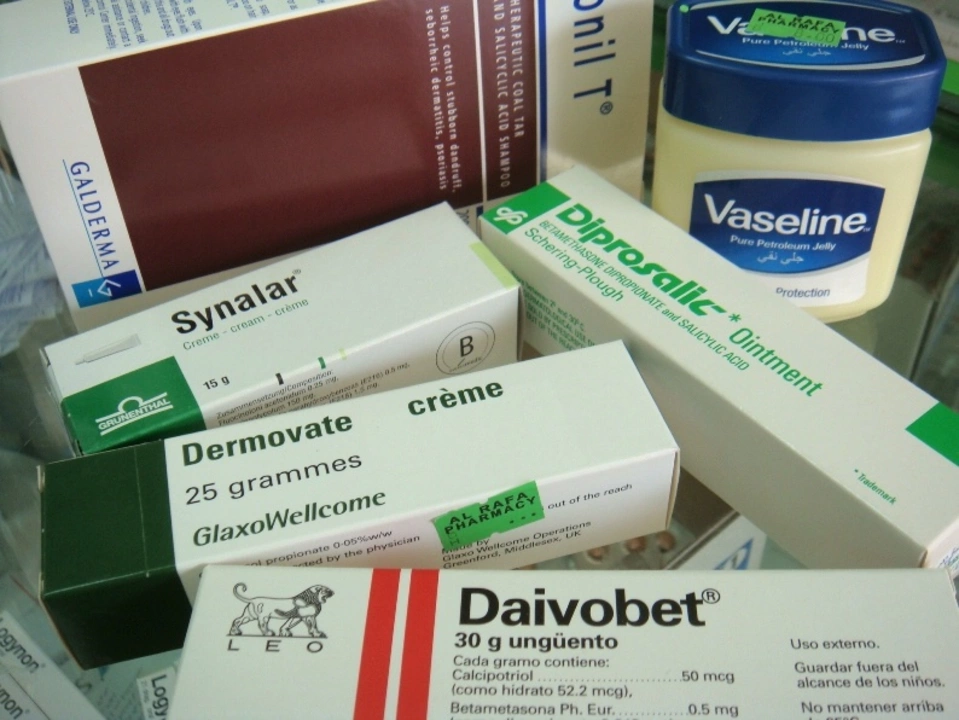Understanding Calcipotriol and Vitamin D
Before diving into the connection between calcipotriol and vitamin D, it is essential to understand what each of these substances is and their role in our bodies. Calcipotriol is a synthetic derivative of vitamin D, also known as calcipotriene. It is commonly used as a topical medication to treat skin conditions such as psoriasis.
Vitamin D, on the other hand, is a fat-soluble vitamin that plays a crucial role in maintaining healthy bones, teeth, and muscles. It is primarily obtained through exposure to sunlight, but can also be found in certain foods and supplements. Now that we have a basic understanding of these two substances, let's explore their connection in more detail.
The Role of Vitamin D in Skin Health
Vitamin D is essential for maintaining healthy skin, as it plays a crucial role in the growth, repair, and metabolism of skin cells. It also has anti-inflammatory properties that help to reduce inflammation and redness associated with various skin conditions. Furthermore, vitamin D stimulates the production of antimicrobial peptides, which are essential in protecting the skin from infections.
Deficiency in vitamin D can lead to a variety of skin problems, including dryness, itching, and increased susceptibility to infections. Hence, maintaining adequate levels of vitamin D is crucial for overall skin health and well-being.
Calcipotriol as a Treatment for Psoriasis
Psoriasis is a chronic skin condition characterized by red, scaly patches on the skin, which can be itchy and painful. The exact cause of psoriasis is unknown, but it is believed to be an autoimmune condition in which the immune system attacks healthy skin cells, causing inflammation and rapid cell turnover.
Calcipotriol, being a synthetic derivative of vitamin D, has been found to be an effective treatment for psoriasis. It works by slowing down the excessive growth of skin cells and reducing inflammation, thus helping to alleviate the symptoms of psoriasis. Calcipotriol is typically applied topically as a cream or ointment and is available by prescription only.
How Calcipotriol and Vitamin D Work Together
The connection between calcipotriol and vitamin D lies in their similar molecular structures and biological activities. Calcipotriol, being a derivative of vitamin D, mimics the actions of the natural vitamin in the skin. When applied topically, it binds to the vitamin D receptors in the skin cells, which helps regulate cell growth and differentiation.
By slowing down the rapid growth of skin cells and reducing inflammation, calcipotriol can effectively alleviate the symptoms of psoriasis and improve overall skin health. In this way, calcipotriol harnesses the power of vitamin D to provide relief for those suffering from this chronic skin condition.
Side Effects and Precautions
While calcipotriol has been proven to be an effective treatment for psoriasis, it is important to be aware of potential side effects and take necessary precautions. Some common side effects of calcipotriol include skin irritation, redness, and itching. These side effects are generally mild and can be managed by adjusting the frequency of application or using a moisturizer to soothe the skin.
It is crucial to follow the prescribed dosage and application instructions provided by a healthcare professional, as using too much calcipotriol can lead to elevated levels of calcium in the blood, which can cause serious health problems. Additionally, it is important to avoid excessive sun exposure or the use of tanning beds while using calcipotriol, as this can increase the risk of skin irritation and other adverse effects.
Maintaining a Healthy Balance
In conclusion, the connection between calcipotriol and vitamin D is a testament to the power of this essential vitamin in promoting healthy skin. Calcipotriol, as a synthetic derivative of vitamin D, provides an effective treatment option for those suffering from psoriasis by harnessing the natural benefits of vitamin D.
It is important to remember that maintaining a healthy balance of vitamin D is crucial for overall skin health and well-being. This can be achieved through a combination of sun exposure, a balanced diet, and supplementation when necessary. Always consult with a healthcare professional before starting any new treatment or supplement regimen, and be sure to follow their guidance to ensure the best possible outcomes for your skin and overall health.







April 28, 2023 AT 00:33
Oh, because the world’s skin health crisis was apparently solved by a synthetic vitamin derivative-how utterly groundbreaking :)